This blog has been updated on – February 02, 2024
MuleSoft API-led connectivity imparts operational agility and growth in your business. It drives efficiency and innovations for enterprises using modern tools, software, and apps to boost their business performance and results.
As digital disruption continues to grow intense, most companies are adopting advanced business intelligence tools and intelligent robotics to streamline their workflow & operations. That empowers company leaders to leverage data analytics solutions to their datasets and internal systems.
Over 35% of company revenues come from APIs and related add-ons. More than 90% of professionals agree that APIs are the keys to business success. Organizations increasingly use them to collect and share data across the interconnected network and systems.
MuleSoft is one of the preferred options for API integration and management over other platforms. Want to know why?
Look closely at API-led connectivity and how it complements enterprise data integration and management solutions.
Table of Contents:
Intro to API Management & Benefits
API, application programming interface, is not a new term for some but is important for many.
Let’s first get a brief on API to explain API management further
APIs are the connectivity interfaces to collect, interpret, and share data between two applications.
API-led connectivity gained prominence when enterprises began implementing MuleSoft data integration to overcome their challenges. That enabled companies to extract, manage, and share data to their internal applications or software using reusable and purpose-driven APIs.
Application programming interfaces are critical for businesses to:
-
Combine multiple sources of data and capabilities for better user experiences.
-
Connect software applications and enable seamless data sharing.
-
Achieve complex tasks by integrating dozens of reusable APIs with big data and MuleSoft integration.
What is API Management?
In simple terms, API management is the process of building, customizing, integrating, monitoring, and analyzing APIs. It involves a team of dedicated and certified engineers to run, secure, and maintain APIs with the right stack of technology and tools.
They also ensure that APIs are operational and fulfilling their purposes. Here are the significant advantages of leveraging API management platforms within your business:
-
Supports privacy and governance – API management facilitates security and compliance with privacy rules and regulations to protect sensitive data.
Enterprises can also impose rules and access restrictions on data resources and API keys to avoid uncertain risks.
-
Automation – Most API management platforms automate the customization and development of APIs. That further reduces the complexities and pains of deploying APIs with business intelligence tools.
-
Analytics and Reporting – It also covers the benefits of big data analytics and insights, enabling businesses to track and review usage patterns. That empowers users to plan out their next API-led connectivity strategy.
-
Open Accessibility – API management gives access to dozens of ready-to-use APIs to developers with complete documentation as well.
What is MuleSoft-led API Connectivity?
The API-led connectivity in MuleSoft relates to connecting data to applications via reusable and purpose-oriented APIs.
These custom APIs can extract data from systems, curate data for processes, and deliver incredible experiences. When integrated with an enterprise ecosystem, the company can access, reuse, and refine data-driven inputs for better performance and decision-making.
Top tech giants, including Siemens, Mastercard, Unilever, and Spotify, are investing in database integration for MuleSoft API management.
How Does MuleSoft API Platform Work?
API-led connectivity uses multiple building blocks to extract and integrate data from various sources or apps.
The core features of API building blocks are:
-
They can be identified, accessed, and managed altogether.
-
They reflect everything from A to Z of a business.
-
They’re scalable and designed for ease of consumption.
MuleSoft developers use APIs to render software data into building blocks by enabling security, monetization, manageability, visibility, automation, and intelligence. This results in universal connectivity.
Types Of MuleSoft APIs Used for Enterprise Integration
With API-led connectivity in MuleSoft, users can run managed APIs with self-service access and more control. There are three layers or types of MuleSoft APIs that most developers use with this enterprise integration platform, and they are as follows:
System API
Companies generally use system APIs to access the base network of the ecosystem and reduce the complexities or modifications in the process. Also, multiple users can access and reuse different APIs without getting into internal systems.
Experience API
Experience APIs enable direct reconfiguration of data, allowing users to access it from an open source. Users won’t have to do individual integration to establish any specific network.
This type of API is designed with an API-first design approach while keeping the user experience in mind.
Process API
The Process APIs share and create data within a single system without depending on the source systems. They integrate business logic, data implementation, aggregation, and data routing to encourage a better understanding of downstream APIs.
Recommended Reading:
Benefits of API-led Connectivity MuleSoft
The advantages of MuleSoft API-led connectivity contribute to robust agility, governance, viability, and productivity within the business operations. The reusability of API assets cuts down the budget and time consumed in optimizing your internal procedures and enterprise performance.
Organizations intending to process API in MuleSoft with database maintenance can boost their organizational infrastructure, empowering them to deliver projects three times faster and better.
Let’s take through the prominent benefits of investing in MuleSoft API-led connectivity:
Minimizes IT workload
API-led scales down enterprise IT workload to a greater extent.
With a bundle of projects on the to-do list, enterprises rely on technology infrastructure and resources to meet the team’s constant workflow and other internal needs. It becomes too hectic for IT staff to manage project needs and legacy systems of organizations with limited resources.
Upon leveraging API-led connectivity, companies can integrate reusable assets or building blocks into varied ecosystems of the projects. It supports modern automation tools and methodologies defined with every new project and dissolves the scope of working from scratch.
Aids to Build or Buy Decision-making
MuleSoft API monitoring gives a brilliant opportunity to identify the consequences before building an API asset from scratch or buying its reusable model.
Businesses can evaluate their decisions of choice and go with the one that ensures long-term success for the project undertaken.
Reduces Data Silos and Boosts Customer 360
The comprehensive connectivity of the MuleSoft API management platform also breaks data silos.
APIs are the centers comprising data attributes based on context, performance, security, and real-time accessibility. They connect and share data insights derived from multiple sources and applications across the internal ecosystem of the business.
At this stage, the role of experience APIs comes in. Companies use MuleSoft API manager with those APIs to engage customers and improve their experiences.
Explore our enterprise data analytics case studies and see how BluEnt is helping top brands grow.
Why Choose BluEnt for a Successful MuleSoft API Strategy & Consulting?
APIs are the mission-critical components of any business infrastructure, website, and application. Organizations have multiple methods to incorporate them seamlessly, and MuleSoft API-led connectivity is one of the mechanisms to achieve that goal.
Nevertheless, API management on MuleSoft or any other enterprise integration platform is not a cakewalk. Companies need certified and experienced experts to build a success-driven API strategy. BluEnt is a group of passionate tech enthusiasts and business minds with over 20+ years of experience in areas of Business, Engineering, and Technology.
Our core competencies include business intelligence, enterprise data management, enterprise mobility, CRM solutions, and enterprise resource planning. We are trusted by hundreds of small, medium, and large enterprises all over the globe.
Are you looking forward to adopting an API-led approach in your business? Contact us to get started!
Frequently Asked Questions on API-led Connectivity
What are the most popular API management tools?
MuleSoft Anypoint is one of the preferred enterprise integration platforms for API management. Here are some other tools available for API-led connectivity:
-
Boomi API management
-
IBM API Connect
-
Akana API management platform
-
Broadcom Layer7 API management
What are the use cases of API-led connectivity?
Here are two real-life examples of MuleSoft API management in different industries:
-
Supply chain and transportation industry using MuleSoft Partner Manager to collect and segregate different data patterns and transport protocols of the partner.
-
The financial industry uses API-led connectivity to identify and authenticate customers to drive better CX.
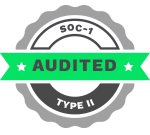










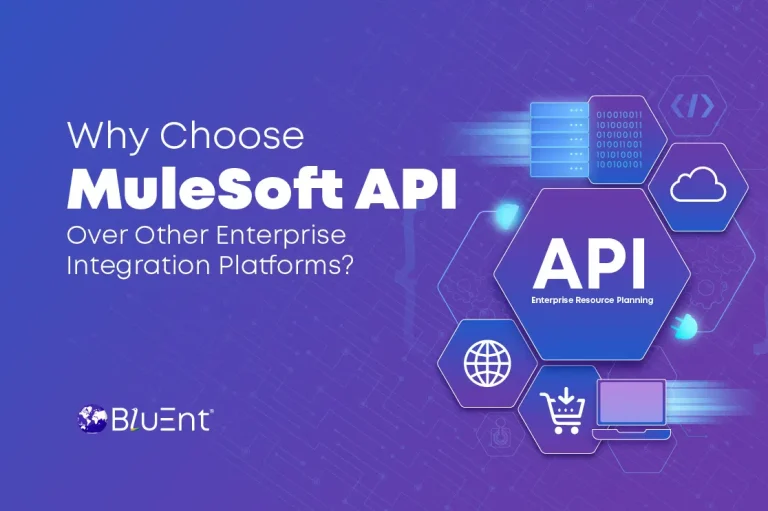
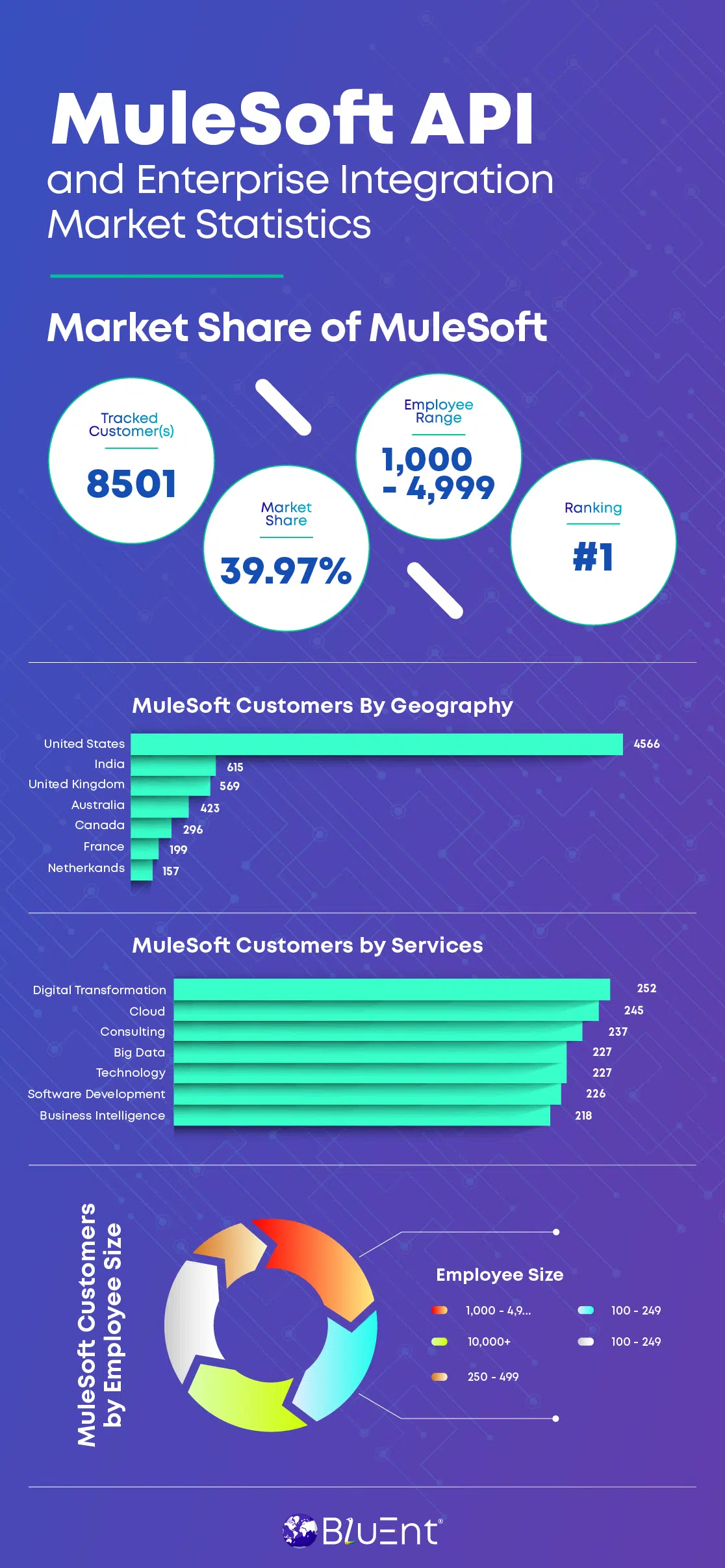
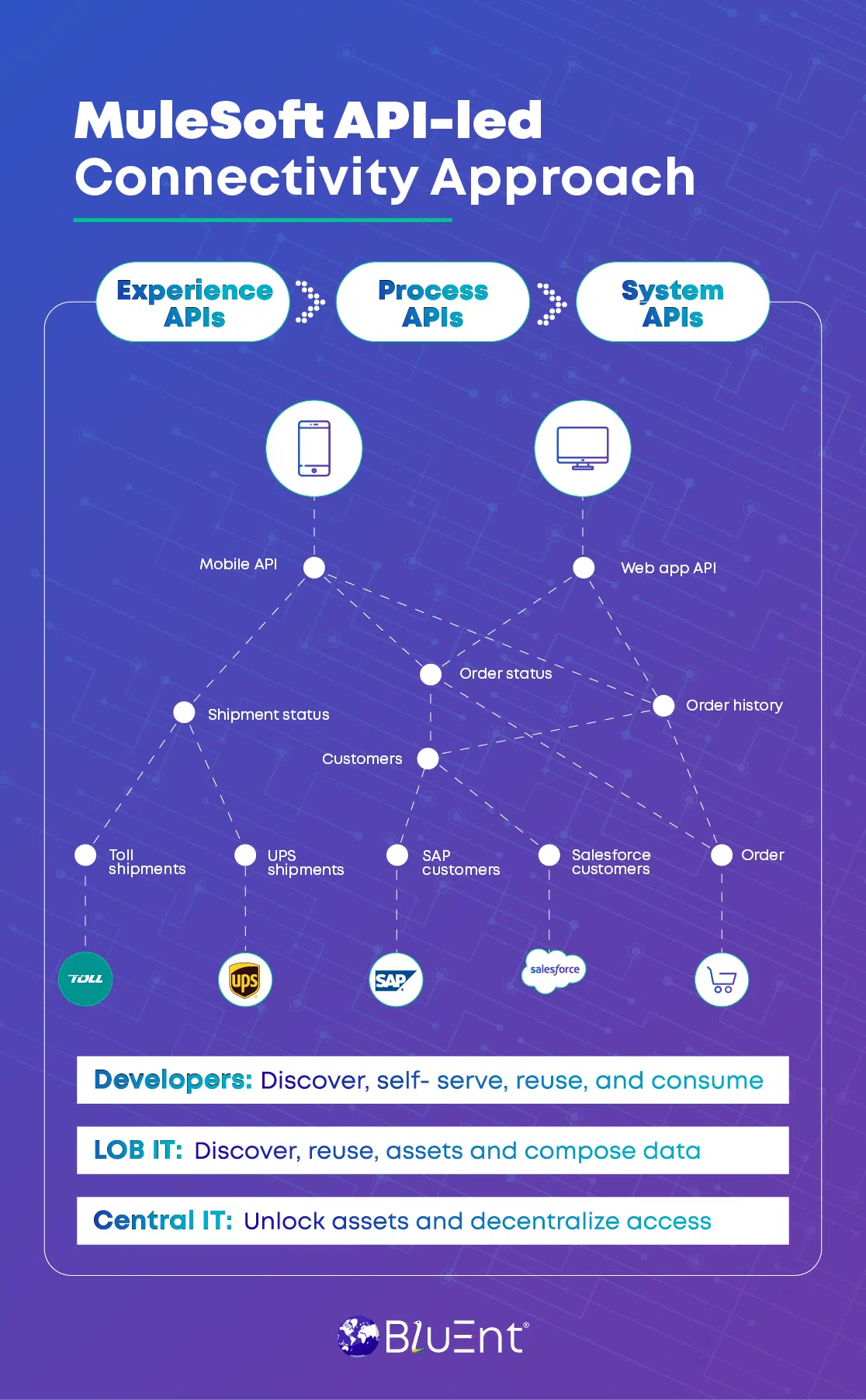
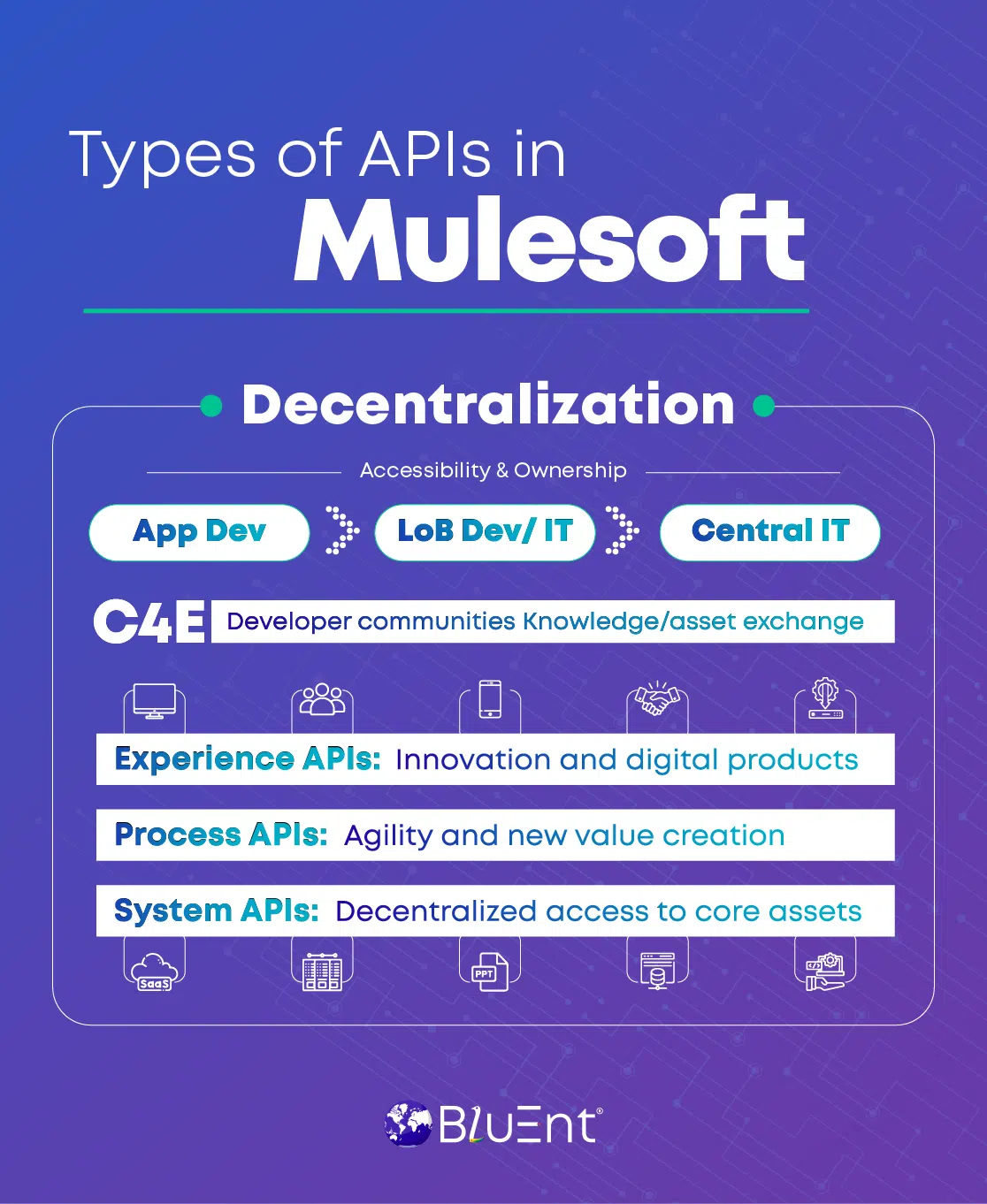
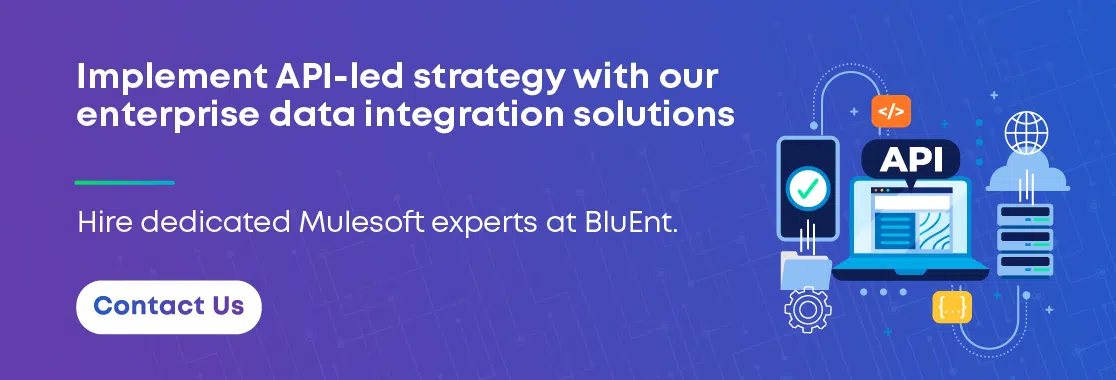
 The Power of Data in Enhancing Gift Card Customer Retention and Engagement
The Power of Data in Enhancing Gift Card Customer Retention and Engagement  Dell Boomi Integration Platform Explained: Architecture, Benefits, and Comparison with MuleSoft
Dell Boomi Integration Platform Explained: Architecture, Benefits, and Comparison with MuleSoft  Explainable AI (XAI): Bridge of Trust Between AI and Humans
Explainable AI (XAI): Bridge of Trust Between AI and Humans  How is the MuleSoft eCommerce Integration Platform Mitigating Retail Challenges?
How is the MuleSoft eCommerce Integration Platform Mitigating Retail Challenges? 
